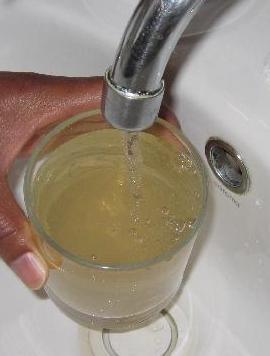Cayman gets clean bill of health for Cholera watch
 (CNS): A Pan-American Health Organization (PAHO) Disaster Response Team visiting Cayman has found local cholera-preparedness to be “very good”. Dr Robert Lee, who led the three-member delegation, told the health minister that the islands surveillance system was unique in the region and could offer no suggestions for improvement. “The Cayman surveillance system is unique in the Americas…I can’t think of any way to improve it,” the PAHO doctor said to Mark Scotland during a visit sponsored by the UK government’s Department for International Development (DFID), to assist overseas territories in their readiness for a cholera threat.
(CNS): A Pan-American Health Organization (PAHO) Disaster Response Team visiting Cayman has found local cholera-preparedness to be “very good”. Dr Robert Lee, who led the three-member delegation, told the health minister that the islands surveillance system was unique in the region and could offer no suggestions for improvement. “The Cayman surveillance system is unique in the Americas…I can’t think of any way to improve it,” the PAHO doctor said to Mark Scotland during a visit sponsored by the UK government’s Department for International Development (DFID), to assist overseas territories in their readiness for a cholera threat.
“The Cayman Islands has a low probability of the introduction and a relatively low probability of transmission of cholera,” said Dr. Lee. “It’s good to see confirmation that your systems are well-developed. In the event of a few cases, your hospital can manage them, as it is designed with great flexibility – which is also unique in the region.”
The team’s current assignment is in this region following the cholera outbreak in Haiti which has resulted in over 400,000 cases and many deaths. While cases are now declining there, neighbouring Dominican Republic recently saw a spike in cholera following the summer rains.
Cholera is primarily contracted by consuming contaminated drinking water or food, with the main symptoms being profuse watery diarrhoea and vomiting.
The visitors toured the Cayman Islands Hospital, examined plans involving other agencies, and met with senior officials and Health Services Authority (HSA) staff members, including the Cholera Response Team. The Cholera case management training was conducted for about 45 members of a multidisciplinary team. They confirmed that a good monitoring system is in place, and that there is close collaboration with the Cayman Water Authority and the Department of Environmental Health.
Happy with the “validation that Cayman’s medical personnel are very motivated, trained, and familiar with dealing with such an emergency”, Dr. Marodon cautioned that management of water supplies and waste-water are key considerations in this disease. The visitors offered advice on assessing the risks posed to residents with poor water supply, discharge and sanitation; as well as the need for closer monitoring of ground-water tables – where bacterial contamination can occur.
Scotland thanked the scientists for lending their expertise and applauded the continued work of local health-service professionals and related stakeholders.
The visit of the team, including Dr. Frederique Marodon and Yvan Grayel of the DFID, was facilitated by Cayman’s Medical Officer of Health Dr. Kiran Kumar. In conclusion, they shared their findings with the Health Minister, as well as Chief Officer Jennifer Ahearn.
Category: Health

